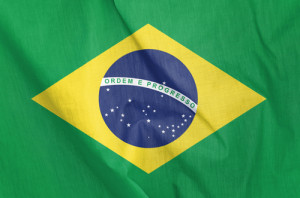Brazil’s Internet Bill of Rights Compared to Section 230 (Excerpt from My Internet Law Casebook)

Photo credit: Fabric Flag of Brazil // ShutterStock
___
In 2014, Brazil enacted a new “Internet Bill of Rights.” An unofficial translation of some key parts:
Art. 18 The provider of connection to internet shall not be liable for civil damages resulting from content generated by third parties.
Art. 19 In order to ensure freedom of expression and prevent censorship, the provider of internet applications can only be subject to civil liability for damages resulting from content generated by third parties if, after an specific court order, it does not take any steps to, within the framework of their service and within the time stated in the order, make unavailable the content that was identified as being unlawful, unless otherwise provided by law.
§ 1º The referred court order must include, under penalty of being null, clear identification of the specific content identified as infringing, allowing the unquestionable location of the material.
§ 2º The implementation of the provisions of this article for infringement of copyright or related rights is subject to a specific legal provision, which must respect freedom of speech and other guarantees provided for in Art. 5º of the Federal Constitution.
§ 3º The compensation disputes for damages arising from content made available on the internet related to the honor, reputation or personality rights, as well as the removal of related contents by internet application providers, can be presented to special small causes courts.
§ 4º The judge, including within the proceeding set forth in § 3º, can anticipate, partially or in full, the effects of the request contained in the initial petition, to the extent that undisputable proof exists of the fact, considering society’s collective interest in the availability of the content on the internet, as long as the requisites of truthiness of the author’s claims, the reasonable concern of irreparable damage, or damage that is difficult to repair are met.
Art. 20 Whenever the contact information of the user directly responsible for the content, referred to in Art. 19, is available, the provider of internet applications shall have the obligation to inform the user about the execution of the court order with information that allows the user to legally contest and submit a defense in court, unless otherwise provided by law or in a court order.
Sole Paragraph. When requested by the user, who provided the content made unavailable, the provider of internet applications that carries out this activity in an organized, professional manner and for economic purposes, shall replace the content made unavailable for a note of explanation or with the text of the court order that gave grounds to the unavailability of such content.
Art. 21 The internet application provider that makes third party generated content available shall be held liable for the breach of privacy arising from the disclosure of images, videos and other materials containing nudity or sexual activities of a private nature, without the authorization of the participants, when, after receipt of notice by the participant or his/hers legal representative, refrains from removing, in a diligent manner, within its own technical limitations, such content.
Sole Paragraph. The notice set forth above must contain sufficient elements that allow the specific identification of the material said to violate the right to privacy of the participant-user and the confirmation of the legitimacy of the party presenting the request.
It’s hard to properly evaluate this text without reading it in its original language (“truthiness”?) and thoroughly understanding Brazilian law, which differs from U.S. law in many significant ways. Still, we can infer from Article 19 that “providers of internet applications”—presumably including both websites and mobile apps—generally aren’t civilly liable for user-generated content until a court orders its removal. To understand how useful this safe harbor is, we’d need to know how broad Brazilian criminal law is (many countries define more activity as criminal than the United States does) and how hard it is to get a court order (which is easier in many countries than in the United States).
The bill of rights provides special treatment for several claims. Copyright claims apparently are covered by another provision. Claims related to “honor, reputation or personality rights” can be fast-tracked to a small claims court. Claims related to non-consensual pornography are subject to a notice-and-takedown regime.
By generally deferring liability until a court order, Article 19 more closely resembles Section 230 than the European notice-and-takedown rules. Still, Section 230 goes further. A court can’t order a U.S. web host to remove user-generated content; any lawsuit directly against the web host is preempted by Section 230, and a court order in any other lawsuit can’t reach the web host due to Federal Rules of Civil Procedure 65(d)(2). See, e.g., Blockowicz v. Williams, 630 F.3d 563 (7th Cir. 2010); Giordano v. Romeo, 76 So.3d 1100 (Fla. Dist. App. Ct. 2011).